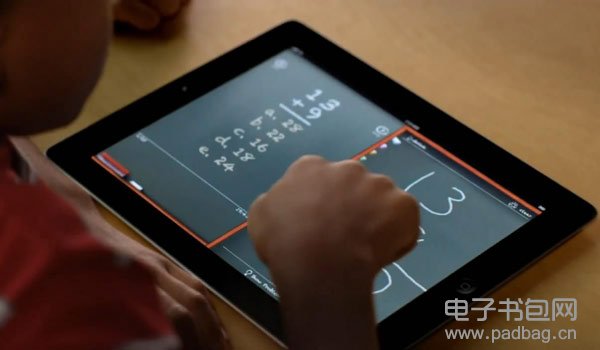Mobilizing a new era in learning
- By Eugene Clark
 0 Comment(s)
0 Comment(s) Print
Print E-mail China.org.cn, May 12, 2013
E-mail China.org.cn, May 12, 2013

Technology has great potential to help us deliver education that is customized to the needs and circumstances of individual students. By doing so, universities may be able to dramatically improve learning outcomes and graduation rates – two important metrics for higher education in China. There is no doubt that mobile learning, or m-learning is the coming revolution in education and learning.
It was Chris Anderson, who, in an October 2004 issue of Wired magazine, articulated the long tail of business – a statistical concept describing the lowest part of a distribution where the population sample tails off. His business argument was that the Internet has the ability to reach these mini-markets and was thus capable of reaping returns that are inaccessible to traditional business models.
The power of modern technology, especially mobile technology, significantly expands the potential of universities and schools to reach students who otherwise could not be reached. Such technology also allows institutions to reach students in ways which are more responsive to their needs and contexts. Technology is especially powerful in reaching students who have often been marginalized – the disabled, those living in remote rural areas and those with behavioural disorders. In other cases, technology can offer additional resources to students with special gifts, especially in its ability to empower the student to be a creator as well as a passive recipient of instruction.
Beyond the classroom, technology can also greatly assist educational administration. This can be seen in many African countries, where schools routinely text parents and build a community of support, for example, by sending a text message if students do not show up for school.
Beyond formal education, technology can also be used by adult learners to upgrade their skills in the workplace and make continuous learning a reality. This will be vital if China is to be successful in moving up the value chain and in future produce more "value-added" products.
While Web 1.0 was about downloading, Web 2.0 has been about communication. Social medial tools present wonderful opportunities, not only for teaching, but also for peer-to-peer collaboration and learning. Class rosters can essentially be "friend" lists enabling students to develop online communities, form study groups, collaborate, engage in creative work, assist one another and share their experiences, thus enriching the learning experience for all.
Given China's mobile phone penetration and the fact that mobile phones now outnumber desktops, it seems logical that China's educational institutions should place themselves at the vanguard of m-learning.
In advocating these technological developments I am not saying that traditional teaching and learning methods will no longer be used or necessary, though they too must continue to improve. Traditional teaching and learning methods will remain important just as television and video are still around following the advent of the Internet. Instead, these new technologies will expand the available "channels" for learning and provide improved access to those who have previously been denied such opportunities. In other cases, old and new methods will merge to create a new and better educational "blend" which will enhance student engagement and produce better results.
Finally, it must be stressed that achieving these educational gains is not without its challenges. Change, especially transformation change, is always difficult and often threatening. An older generation of educators, those "digital immigrants" who are new to technology, may struggle to keep up with and adapt to the technology. Technology also requires a commitment to resources, a focus on building and testing new educational models, and a commitment to building new communities devoted to best educational practices.
With a high value on education, commitment to technology enhancement and now more Internet users and mobile phones than any country on the planet, China seems poised to take advantage of the moment and usher in a new era of learning which will provide its citizens with the required skills to be successful in a new Information Economy.
The author is a columnist with China.org.cn. For more information please visit: http://www.china.org.cn/opinion/eugeneclark.htm
Opinion articles reflect the views of their authors, not necessarily those of China.org.cn.






Go to Forum >>0 Comment(s)